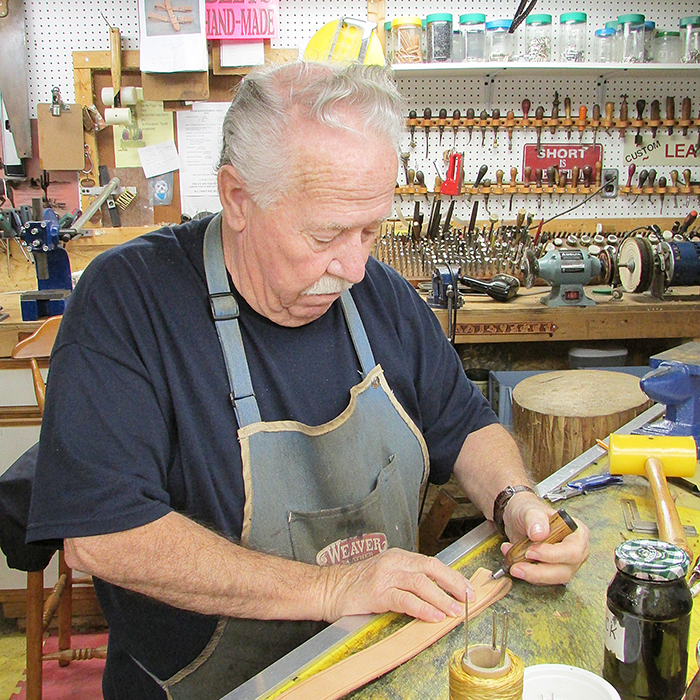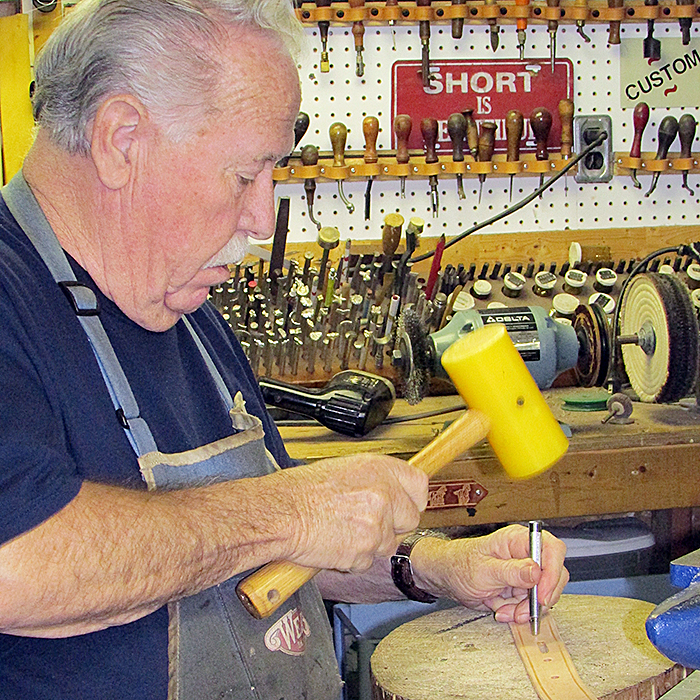
Show Marty King what you might think is a nice leather belt, and he may very well take a quick look at it and tell you it’s full of cardboard.
More than four decades working with leather has given him a pretty good eye, and feel for such things.
King, now 73, learned at a young age he was a natural for leatherworking.
Chatham Mazda from Chatham Voice on Vimeo.
“I took a course at the community centre. I did very well with it,” he said. “The teacher inspected my work and said, ‘What can you teach me?’ I was honoured.”
He said he worked in leather ever since, but much of that as a side job until he retired from truck driving 14 years ago. He opened Longhorn Leather shortly before retiring and dove headfirst into his labour of love.
“I started Longhorn Leather 16 years ago for the tack work,” he said of working with horse harnesses and saddles. “But I do everything but tailoring and shoes.”
If someone comes to him inquiring about leather pants, for example, King points them south to Duke’s Harley Davidson. But if a person stops by with a ripped leather jacket, he’ll help them out.
“I can do invisible mends in leather coats,” he said proudly.
King also makes belts, wallets, purses and even gun holsters. He once made a set of holsters for Canadian country legend Tommy Hunter.
If it’s mass production you want, King’s not necessarily your man. He believes in quality, using all English harness leather.
“Junk just doesn’t last long.”
His belts come with a 20-year warranty unlike the ones with cardboard in them.
Despite his attention to detail, King has tackled some larger projects.
“I got a call several years ago from a woman at a Colorado ski resort. She wanted gifts for guests at the resort. She was looking for 500 belts, and I had a one-month time frame,” he said. “I had it done a week ahead of time.”
It would have been an impossible task during King’s early days of leatherworking. He once did everything by hand. But he has since added a number of machines to the process. A splitting machine, for example, can cut a large piece of leather into strips for belts.
He is especially proud of a hand-crank stitching machine that is 120 years old. It can punch through leather three quarters of an inch thick, and King uses it for saddle repair work, among other things.
King says while he works on saddles, he doesn’t make them. It’s just not financially feasible for customers.
“To build a saddle, I’d have to bill $5,000. You can get a saddle much cheaper than that.”
But King knows his way around horse gear. He said a woman once came by with a box of broken tackle. He asked her when she wanted it repaired by, but she was just going to donate it to him for parts.
He instead fixed it all, and word quickly spread in equine circles of King’s abilities. In fact, he’s perhaps better known outside of Chatham-Kent than within it, despite doing all the tack work for TJ Stables.
“I had a customer in Venezuela who wanted a set of reins made,” he said. “I sent him a set and a week later he called and asked for another dozen. He said, ‘All my boys like them.’”
—
http://www.longhornleathershop.com/







